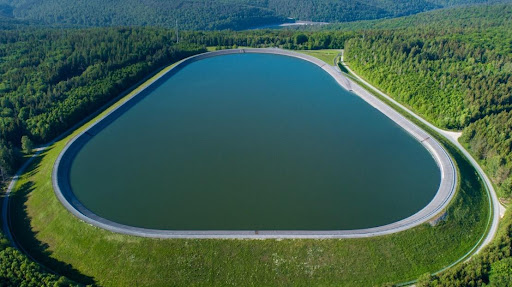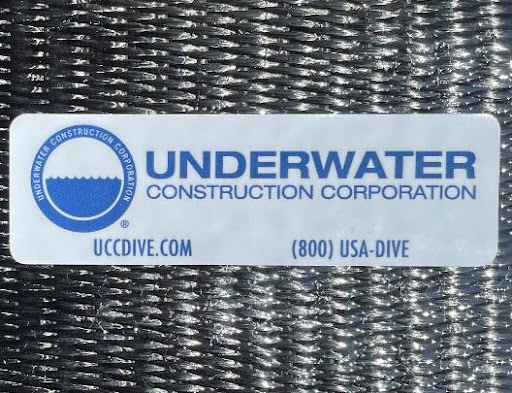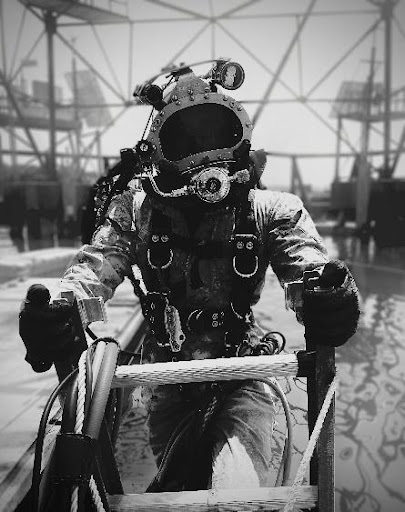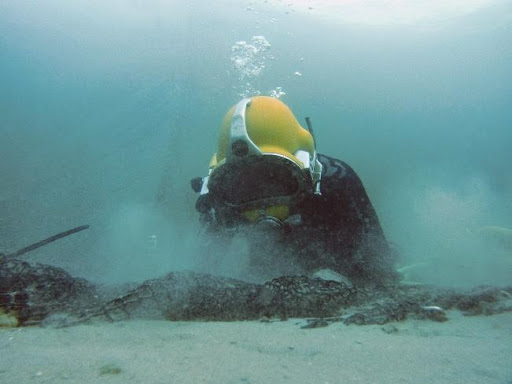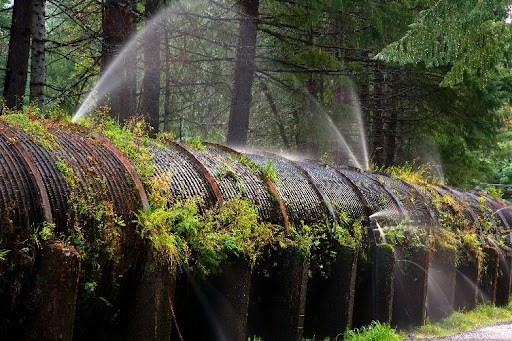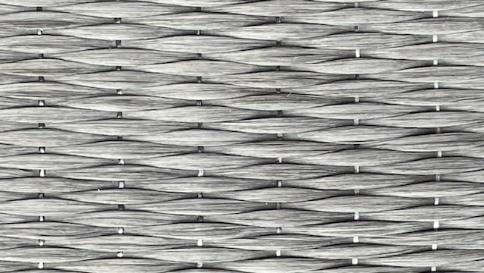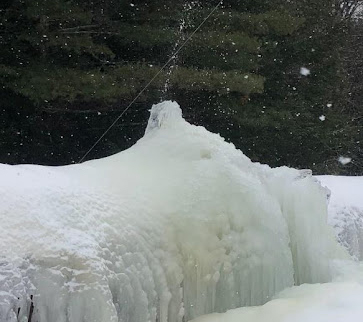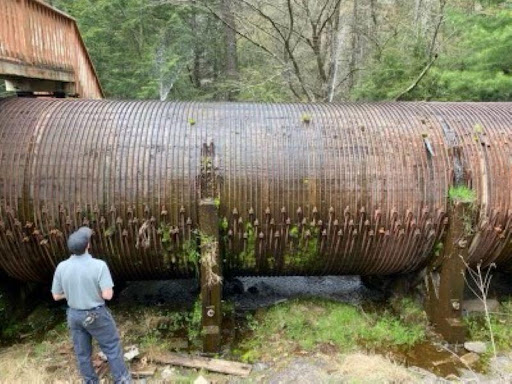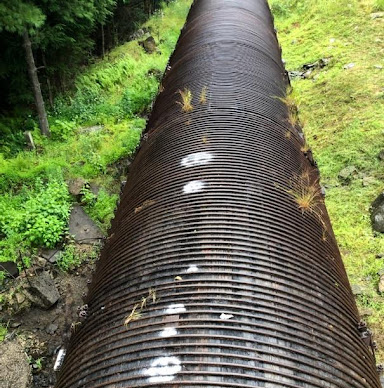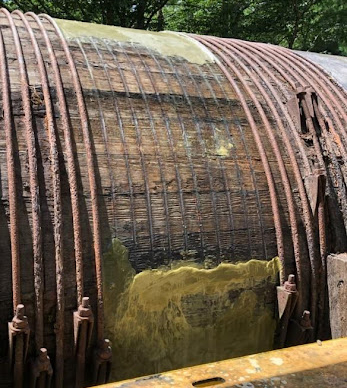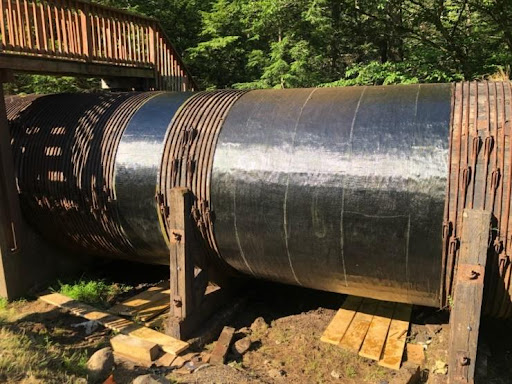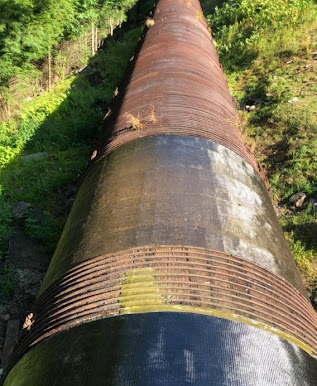The upper reservoir storage basin at a U.S. Pumped Storage Hydropower (PSH) facility
Underwater Construction Corporation (UCC) has been delivering cost effective, high strength, and corrosion resistant carbon wrap solutions since 2015. That experience and more than 53 years of commercial diving background in the power industry have added new life to a 100-year-old green hydroelectric operation.
Pumped Storage Hydropower (PSH) is the most effective and potentially plentiful form of stored energy in the United States. With 43 PSH plants already installed, the U.S. has more than 21 gigawatts of storage capacity. Maintaining the infrastructure of this critical, carbon-free, renewable energy resource in a cost-effective way is essential.
PSH facilities produce electricity by moving water between two reservoirs at different elevations. The water from the higher elevation reservoir descends through a penstock or tunnel, passing through a hydroelectric turbine to the lower reservoir. During off-peak electricity periods, water from the lower water source is pumped back to the upper reservoir for reuse.
UCC’s corporate office in Essex, CT, recently completed a Carbon Fiber Reinforced Polymer (CFRP) infrastructure upgrade to a Northeast PSH penstock.
UCC delivers cost-effective, innovative, and repeatable solutions to PSH with commercial divers either underwater or in the dry. CFRP repairs vital infrastructures such as wood or steel penstocks.
An integral component of the PSH is the penstock pipe. For high-head penstocks, steel is the primary material. For facilities with lower heads, wood stave, fiberglass, concrete, mild steel, and Fiberglass Reinforced Polymer (FRP) are common.
Wooden penstocks typically are constructed of creosote-treated wooden strips called staves ringed with steel bands, spaced at about one foot or less. Wood stave penstocks are limited to low internal pressures
Wood stave pipelines were widely used until at least the 1920s, yet, many are still in service today. Replacing these more than 100-year-old wood stave penstocks with a new steel pipe can be costly and schedule-prohibitive. In most instances, these older, smaller PSH owners/operators determine the best and most cost-effective solution can be carbon fiber wrapping services.
Carbon Fiber Reinforced Polymer (CFRP) penstock repairs and upgrades can deliver high strength, corrosion resistance, and faster repairs than traditional methods. CFRP solutions will provide a low total cost and a better Return on Investment (ROI).
A Northeast U.S. Pumped Storage Hydropower facility initially built in the 1920s required repairs to its wooden penstock.
Although the decades-old penstock had previously operated well, continued loss of efficiency and recent flooding of the immediate area around the structure led to system instability.
UCC’s team of experienced diver mechanics removed the steel banding and repaired the damaged area. The flexible carbon fiber fabric was saturated in the field and bonded to the substrate using a specially formulated epoxy resin.
The CFRP’s strength-to-weight ratio exceeds that of steel, making it an excellent life extension solution at a fraction of the cost of conventional techniques.
UCC and its staff of over 200 divers, supervisors, and project managers is the largest inland commercial diving services company in the USA. We operate from multiple regional locations in Connecticut, Maryland, Michigan, South Carolina, Tennessee, Texas, and Wisconsin. Many Pumped Storage Hydro Facilities throughout the U.S. could benefit from this high-strength, quick, economical, and low-weight carbon fiber wrapping service.
In addition to our expertise in providing Carbon Fiber Reinforced Polymer wrapping, we routinely perform power plant (fossil & nuclear) underwater inspections and infrastructure repair. In addition, we perform cooling water intake/discharge structures maintenance, dredging/sediment dewatering, pile jacketing, water tank cleaning, and underwater hydroelectric dam maintenance services.
For more information about our underwater, moist environments or dry CFRP applications, don’t hesitate to contact UCC’s James Keeling at (860) 767-8256 or [email protected].
